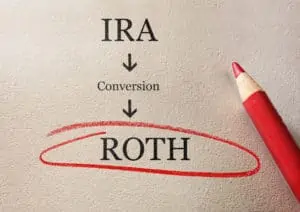The other day I met a old college buddy of mine, Gerry, for lunch and to catch up on each other’s lives. Gerry’s a good family guy, married with 3 teenagers with one in college. He and I can certainly relate to each other these days. Gerry has always been a roast beef sandwich guy for years. Heck, even when we went to sea together years ago traveling the globe, on liberty Gerry was always searching for the best roast beef. So, I brought Gerry to Sean Daily’s new place on Main Street in Falmouth called “Eat Your Heart out Café”. One of his many specialties is a warm roast beef sandwich. Both Gerry and I agree, if you have not been there it is worth the trip.
As usual, the conversation was about a variety of subjects including family, business, and a little bit of political prognosticating. I was sharing how my wife, Jill, and our kids sometimes will make a family night of going out for dinner and a movie. I mentioned that last weekend we couldn’t seem to agree on where to go for dinner and what movie to take in and were in danger of missing both. I just wanted to spend some time with my wife and kids but felt like we were a bunch of diplomats at the bargaining table trying to negotiate a border dispute. The conversation with Gerry then turned to the upcoming 2020 elections and all the varying issues that are in play, including entitlement programs, taxation, and the crumbling US infrastructure as we hurtle towards the fact we are mortgaging our future with National debt.
My buddy made the comment that whether it’s your relationships, business, or politics, it’s all “Game Theory.” He talked about how Game Theory was developed by economist John Nash, whose life was portrayed in the 2001 Oscar Best Picture winner, “A Beautiful Mind.” In a nutshell, he explained that Game Theory is where we all have preferences and choices in our interactions with others, but when we get to the ultimate outcome it may not be the intended outcome any of us sought in the beginning. We start out playing to win, but often times we end up with a compromise, or we all end up losing. The simplified, classic example is the game of “chicken” where two people race towards each other in cars. The supposed loser is the person that swerves out of the way first and the other person wins the “valuable” prize of keeping their pride. The problem is there is another outcome, nobody swerves, and you have a horrific car wreck. Another option is both swerve, lose a little bit of pride, but go on with their lives and vehicles intact.
Hmmm . . . I got thinking.
I got thinking about how our impending National Debt crisis and the current highly oppositional nature of our political climate is creating our own game of “chicken” with regard to the country’s economic future. Our current preferences on how to deal with taxation, entitlement programs, and failing infrastructure is drowning out the fact that we are mortgaging our future by not addressing our debt problem. It’s not just the debt that’s already in place, but the fact that we continue to deplete assets and create future liabilities without having a meaningful way to fund them in the future.
Folks . . . this is a big problem.
In its Trustee report, The Social Security Administration predicts it will become insolvent in 2035₁. The most recent Congressional Research Service report for Medicare projects insolvency in 2026₂. According to the American Society of Civil Engineers’ 2017 Infrastructure Report Card, which comes out every four years, US infrastructure gets a D+ grade. It got the same grade in 2013. The ASCE projects the US needs to spend some $4.5 trillion by 2025 to improve the state of the country’s roads, bridges, dams, airports, schools, and more.
The problems we face are real and becoming larger and looming ever closer. As a country we will need to make changes to how we spend and raise money to pay for our future obligations. Whether it’s addressing taxation, modifying benefits, or coming up with meaningful ways to address our infrastructure, changes are coming. Some of us may not be directly or immediately affected by some of the changes. For the most part for many of us our day to day lives will continue the same in many ways.
But at some point, we will all have to realize that things might happen that we may not agree with, yet we still have to be aware of how they impact us. The current tax cuts put through by the Trump Administration and Congress are set to expire in 2026. What will that mean, and will that really happen in practice? Some economic theorists have surmised the Federal Reserve will elevate its current inflation “goal” from 2% to 4% or even 5% through its ability to control the money supply. What does that mean for long-term investment in fixed debt? How will Social Security and Medicare benefits be reconstituted to address the impending insolvencies they face? How exactly do we raise the funds to address the infrastructure crisis?
Another thing to remember is that the financial markets are far more driven by fundamentals than by which presidential administration is in power. As of February 28, 2020, President Trump had been in power for 782 “market days (days the financial markets have been open)”. During that time the S&P 500 has been up 30%. If you look at the last six presidential administrations, that falls somewhere in the middle. By comparison, the numbers for the other administrations at the end of 782 market days for the S&P 500 are: Obama, 70% up, Clinton 52% up, George H.W. Bush, 44% up, Reagan, 18% up and George W. Bush 14% down. To look at those numbers it may see counter intuitive that the Democrats had the “better performance.” The reality is that each of them inherited different economic conditions and possibly benefited from or had to overcome their predecessors.
The 2020 elections will come and go. Our chosen candidates may or may not prevail. What won’t go away is our national debt crisis. We have to start addressing it and soon. Consequently, as individual investors we all need to prepare for it and address it within our own portfolios and retirement planning. Unless you have a very long-term horizon until retirement, buy and hold probably won’t get you the best results. There will need to be down-side risk mitigation system incorporated into each plan based on data, risk budgets and time horizons. A sluggish economy is never fun, and while the media often depicts the national crisis, we still have our own individual experiences within those events and times. So it’s up to each of us to prepare for unexpected events that might come our way so we can better protect our future and that of generations to come.
So as always – be vigilant and stay alert, because you deserve more!
Have a great week.
Jeff Cutter, CPA/PFS is President of Cutter Financial Group, LLC, an SEC Registered Investment Advisor with offices in Falmouth, Duxbury, Mansfield & Southlake, TX. Jeff can be reached at jeff@cutterfinancialgroup.com.
This article is intended to provide general information. It is not intended to offer or deliver investment advice in any way. Information regarding investment services is provided solely to gain a better understanding of the subject of the article. Different types of investments involve varying degrees of risk. Therefore, it should not be assumed that future performance of any specific investment or investment strategy will be profitable. Market data and other cited or linked-to content in this article is based on generally-available information and is believed to be reliable. Cutter Financial does not guarantee the performance of any investment or the accuracy of the information contained in this article. Cutter Financial will provide all prospective clients with a copy of Cutter Financial’s Form ADV 2A and applicable Form ADV 2Bs. Please contact us to request a free copy via .pdf or hardcopy. Insurance instruments offered through CutterInsure, Inc.






